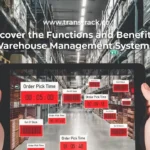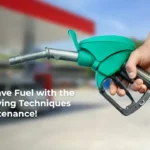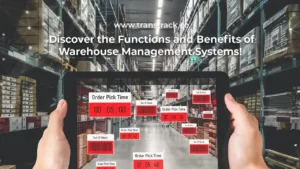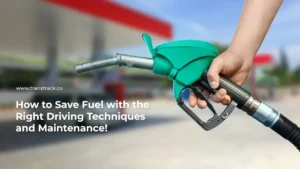What is Fuel RON? Check Out the Definition, Types and Tips Here!
Posted on January 9, 2024 by Nur Wachda Mihmidati

Choosing the right type of fuel has a big impact on engine performance. One important aspect in determining the quality of fuel is the RON (Research Octane Number) value or commonly called octane value.
Research Octane Number is a standard used to measure the ability of fuels, especially gasoline, to avoid knocking in the engine. Knocking is a phenomenon that occurs when a mixture of air and gasoline ignites uncontrollably in the engine combustion chamber, which can damage the engine and reduce fuel efficiency.
Fuel octane rating has become important due to the development of increasingly sophisticated vehicle engine technology. Modern engines are often designed to use fuels with specific octane values to achieve optimal performance. Therefore, choosing the right Research Octane Number can help maintain vehicle engine health, prevent damage, and maximize fuel efficiency.
The use of fuel with the appropriate Research Octane Number is essential for optimal performance of the vehicle engine and preventing engine damage. Therefore, an understanding of fuel RON is very important to understand for motor vehicle users and owners. Check out the article TransTRACK below for a more detailed explanation of fuel RON.
Types of Fuel RON in Indonesian Gas Stations
In Indonesia, there are several types of Research Octane Number fuel available in the market. Understanding the differences between these types is important in order to choose the fuel that suits the needs of our vehicle engine. Here are some types of RON fuel in Indonesia:
RON 88 (Premium)
RON 88, better known as Premium, is a type of fuel with a lower octane rating. With an octane rating of around 88, this fuel is generally more affordable in terms of price. However, it is more likely to cause knocking in engines that require a higher octane rating.
RON 92 (Pertalite)
Pertalite is a fuel with an octane rating of around 92. Offering a moderate octane rating, Pertalite is often considered a balanced choice between performance and price. This fuel is suitable for most vehicles on the road.
RON 95 (Pertamax)
Pertamax has a fairly high octane value of RON 95. It is suitable for vehicles with engines that have a high requirement for octane rating. Although slightly more expensive, Pertamax can improve fuel efficiency and engine performance.
RON 98 (Pertamax Turbo)
Pertamax Turbo is a type of fuel with an octane rating of around 98, making it the highest octane rated option available in Indonesia. This fuel is specialized for vehicles that have engines that require very high octane values, such as sports cars.
Tips for Choosing the Right RON for Your Vehicle
Choosing the right Research Octane Number is very important to maintain the health of your vehicle’s engine. Here are some tips for choosing the right fuel Research Octane Number:
Pay attention to the Manufacturer’s Recommendation
Recommendations for the octane rating appropriate for a vehicle’s engine can usually be found in the manual or in the vehicle specification information. Manufacturers design vehicle engines with a specific octane rating, and using the recommended Research Octane Number can ensure optimal performance.
Consider the Engine Type
The type of vehicle engine also plays an important role in choosing the right Research Octane Number. High-compression engines tend to require higher octane fuel to prevent knocking. If your vehicle is equipped with a high-tech engine, consider using an RON that matches the needs of the technology.
Consider Usage Needs
How you use your vehicle can also influence your choice of RON. If you frequently travel long distances or carry heavy loads, consider using a RON with a higher octane rating. This can help keep the engine performance at optimal conditions, especially when the engine is working harder.
Impact of Using an Inappropriate Fuel RON
Using a fuel RON that does not match the engine’s needs can have a negative impact on engine performance and health. Some of the impacts that may occur include:
Engine Knocking
One of the most common impacts of using low RON fuel is engine knocking. Knocking occurs when a mixture of air and gasoline ignites uncontrollably within the combustion chamber. This can cause damage to pistons, valves, and other engine components.
Decreased Fuel Efficiency
Using an RON that does not match the manufacturer’s recommendations may result in decreased fuel efficiency. The engine may not be able to burn the fuel properly, causing waste and increased fuel consumption.
Increased Exhaust Gas Emissions
Fuel with a low octane rating can cause incomplete combustion. This results in increased emissions of harmful exhaust gases, such as carbon monoxide (CO) and hydrocarbons (HC), which are detrimental to the environment and may violate regulations.
Decreased Engine Performance
The use of inappropriate fuel RON can result in a decrease in overall engine performance. The engine may not be able to produce maximum power, reduce responsiveness, and cause the vehicle to feel slow.
When it comes to fuel RON selection, an understanding of octane rating and its types is essential. By choosing the appropriate RON, you can improve engine performance, fuel efficiency, and engine life of your vehicle.
The use of TransTRACK Vehicle Maintenance System (VMS) technology plays a crucial role in optimizing vehicle maintenance in relation to fuel RON usage. With VMS, data related to engine performance, fuel usage, and vehicle condition can be monitored in real-time. This allows vehicle owners and fleet managers to gain in-depth information on how the use of a particular fuel RON affects engine health and fuel efficiency.
With advanced data analysis, VMS can also provide timely maintenance recommendations, such as scheduling routine servicing, replacing needed parts, or specific repairs that may be required due to inappropriate fuel RON usage. Thus, the implementation of VMS not only increases the vehicle’s lifespan but also helps save maintenance costs and improve overall operational efficiency. Contact TransTRACK and get more information about implementing a Vehicle Maintenance System for your vehicle maintenance optimization!
Recent Post
Topic :
vehicle enginevehicle maintenance
 Bahasa Indonesia
Bahasa Indonesia









